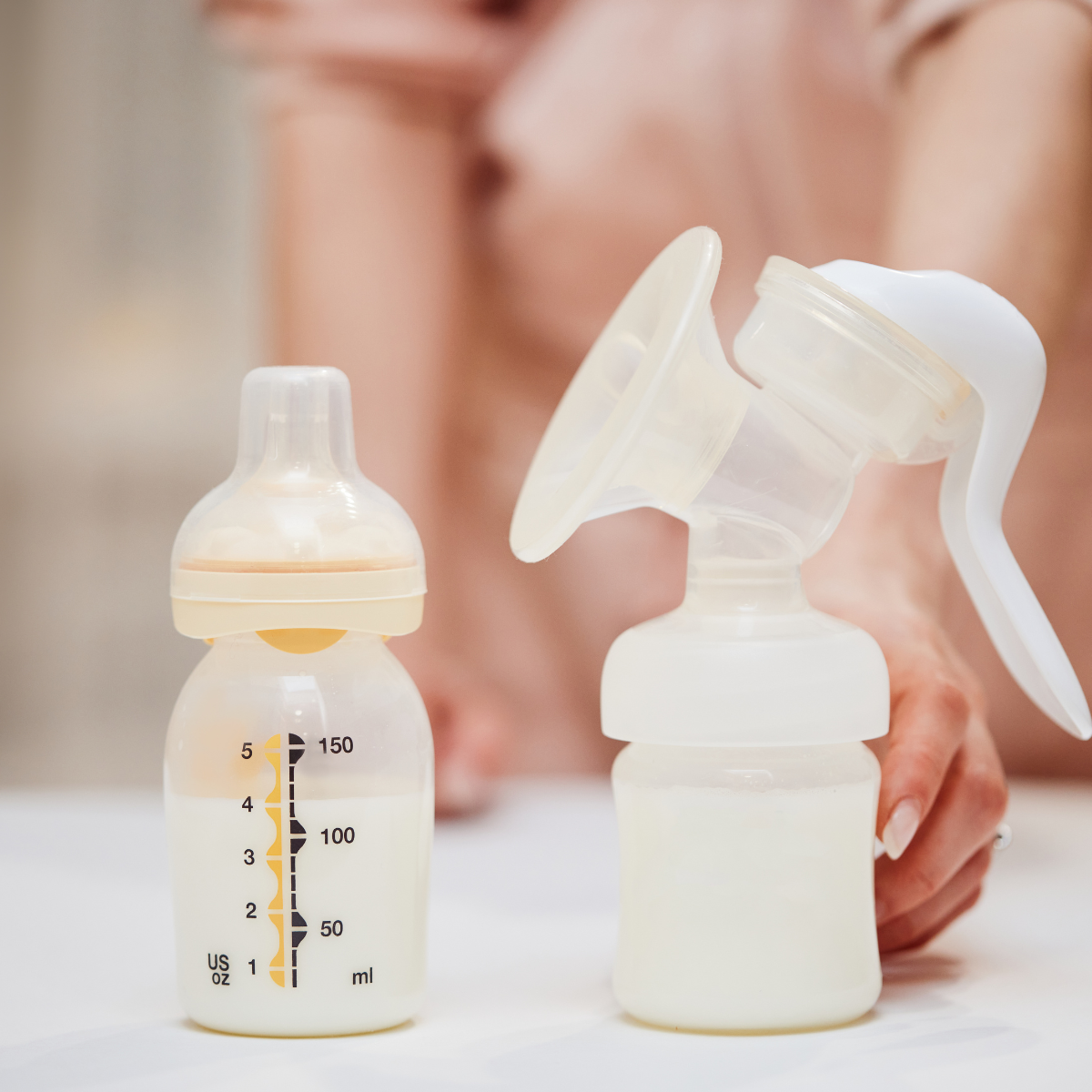Choosing the right baby formula is one of the most important decisions you’ll make as a parent. Whether you’re supplementing breast milk or using formula exclusively, ensuring that your baby receives the right nutrients for their growth and development is crucial. With so many types and brands on the market, finding the best baby formula can be overwhelming. This comprehensive guide will help you navigate the world of baby formulas, explaining the different types available, how to choose the best one, and what to consider based on your baby’s needs.
What is Baby Formula?
Baby formula is a manufactured food designed to feed babies and infants under the age of one, providing all the essential nutrients they need for healthy growth. Formula comes in powdered, liquid concentrate, and ready-to-feed forms, and is typically made from cow’s milk or soy protein. Some formulas also come in specialized versions designed to meet the needs of babies with health conditions or sensitivities.
Formula should be used when breast milk is not an option or is insufficient. While breast milk remains the ideal choice for infants, formula feeding is a safe and effective alternative when necessary.
Types of Baby Formula
There are several types of baby formula, each designed for specific needs. The main types of baby formula are:

Explore various baby formula options to find the best fit for your baby’s nutritional needs.
1. Cow’s Milk-Based Formula
Most baby formulas are made from cow’s milk that has been modified to resemble breast milk. These formulas are enriched with the essential nutrients, vitamins, and minerals your baby needs for growth. Cow’s milk-based formulas are the most commonly used and are suitable for most babies.
Benefits:
- Good for babies with no allergies to cow’s milk.
- Available in various options, including organic formulas.
- Contains essential nutrients like protein, fat, and carbohydrates.
Considerations:
- Some babies may develop an intolerance or sensitivity to cow’s milk protein, leading to digestive issues or allergic reactions.
2. Soy-Based Formula
Soy-based formulas are made from soy protein, making them an excellent choice for babies who are lactose intolerant or have milk protein allergies. These formulas provide the same nutritional benefits as cow’s milk-based formulas but without the dairy proteins.
Benefits:
- Ideal for lactose-intolerant or milk-allergic babies.
- A plant-based alternative to cow’s milk formula.
- Contains all the essential nutrients for healthy growth.
Considerations:
- Soy protein may not be suitable for some babies with soy allergies.
- Some research suggests that excessive soy formula consumption may affect hormonal development, although more research is needed.
3. Hypoallergenic Formula
Hypoallergenic formulas are designed for babies with severe milk protein allergies or sensitivities. These formulas contain broken-down proteins, making them easier to digest and less likely to cause allergic reactions.
Benefits:
- Specifically designed for babies with milk allergies or sensitivities.
- Easier to digest due to hydrolyzed (broken down) proteins.
- Available in both cow’s milk and soy-based varieties.
Considerations:
- Hypoallergenic formulas can be expensive.
- These formulas may have a different taste and texture that your baby might need time to adjust to.
4. Specialized Formula
Specialized formulas are created for babies with specific medical conditions such as premature birth, reflux, or digestive problems. These formulas are carefully designed to meet the nutritional needs of babies with health concerns.
Benefits:
- Tailored to meet the needs of babies with health conditions.
- Includes formulas for premature babies or babies with low birth weight.
Considerations:
- Specialized formulas should only be used under the guidance of a pediatrician.
- These formulas may not be suitable for all babies, especially those without medical conditions.
How to Choose the Best Baby Formula for Your Baby
Choosing the best baby formula for your baby requires considering several factors, including your baby’s age, health needs, and any sensitivities or allergies they may have. Here are some key points to consider:

Choosing the right infant formula as per your baby’s age and growth stage is essential for healthy development.
1. Age and Stage of Development
Baby formulas are typically divided into different stages, which align with your baby’s developmental needs:
- Stage 1 (0-6 months): This is the most common formula type, providing balanced nutrition for newborns. It’s designed to be a substitute for breast milk in terms of its nutrient content.
- Stage 2 (6-12 months): These formulas contain higher levels of protein and other nutrients to support the growth and development of infants who are starting to eat solids.
- Stage 3 (12 months and beyond): These formulas are designed for toddlers who are transitioning to whole milk and eating a more varied diet. They contain more calories and nutrients for your growing child.
2. Nutritional Needs
Make sure the baby formula you choose is fortified with essential nutrients such as:
- Iron: Important for brain development and preventing iron-deficiency anemia.
- DHA and ARA: These fatty acids support brain and eye development.
- Calcium and Vitamin D: Essential for healthy bone growth.
- Vitamins and Minerals: Ensure the formula includes a wide range of vitamins and minerals to support overall health.
3. Your Baby’s Health and Allergies
If your baby has any health concerns, such as allergies or lactose intolerance, choosing the right formula is even more important. Talk to your pediatrician before selecting a formula if your baby has any of the following conditions:
- Lactose Intolerance: Choose a lactose-free formula or a soy-based formula.
- Milk Allergy: Hypoallergenic formulas or soy-based formulas are your best options.
- Reflux: Thickened formulas can help prevent reflux and keep your baby comfortable during feedings.
4. Convenience and Cost
Formula comes in several forms, each with its own level of convenience:
- Powdered Formula: The most affordable option, but it requires mixing with water.
- Liquid Concentrate: This requires dilution with water and is more convenient than powdered formula but slightly more expensive.
- Ready-to-Feed Formula: The most convenient option, as it requires no mixing. It’s ideal for travel, but it tends to be the most expensive.
When choosing a formula, consider both the cost and the convenience of preparing it. Remember, you may need to experiment with different formulas to find the best fit for your baby’s needs.
Common Formula Feeding Concerns
While formula feeding is a safe and healthy alternative to breastfeeding, there are some common concerns parents may face:

Selecting the best baby formula brand ensures the highest quality and safety for your baby.
1. Formula Reactions: Some babies may experience digestive issues such as gas, constipation, or diarrhea when switching formulas. If this happens, consult your pediatrician to find the best formula for your baby’s digestion.
2. Overfeeding or Underfeeding: It’s important to follow the recommended feeding guidelines for the formula you are using. Overfeeding or underfeeding can lead to discomfort and poor growth. Watch for hunger cues and adjust the amount of formula as needed.
3. Formula Storage and Safety: Always store formula according to the manufacturer’s instructions. Most formulas should be used within 24 hours once mixed, and unused portions should be discarded. Follow safe preparation practices to avoid contamination.
4. Transitioning Between Formulas: If you need to switch formulas, do so gradually over several days to help your baby adjust. Start by mixing a small amount of the new formula with the old formula and gradually increase the new formula over time.
Conclusion
Choosing the right baby formula is an essential step in ensuring that your baby gets the nutrition they need to grow and develop. Whether you opt for cow’s milk-based, soy-based, or hypoallergenic formula, it’s important to consider your baby’s health, age, and any specific nutritional needs. Always consult with your pediatrician before switching formulas to make sure you’re making the best choice for your baby’s well-being.
With so many formulas available, there’s no one-size-fits-all solution. However, with careful consideration and guidance from your healthcare provider, you’ll be able to choose the best formula for your baby and give them the best start in life.
For more tips and information on baby nutrition and formula feeding, check out these trusted resources:
Related Articles:






